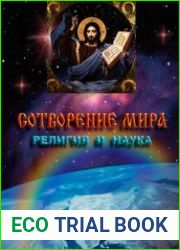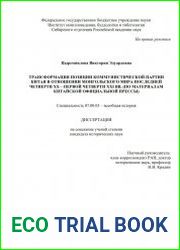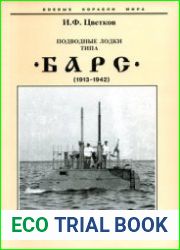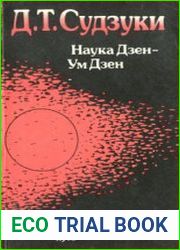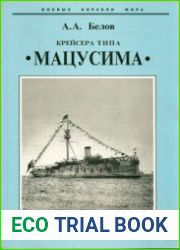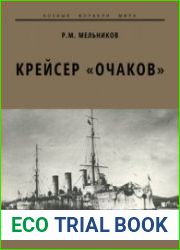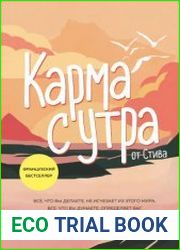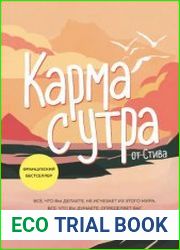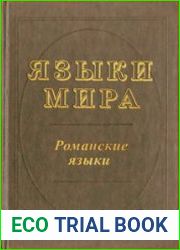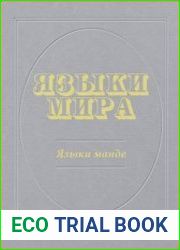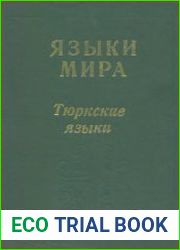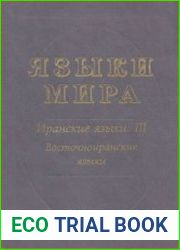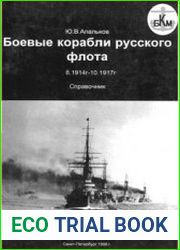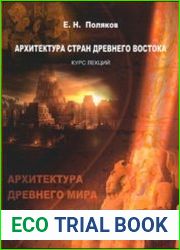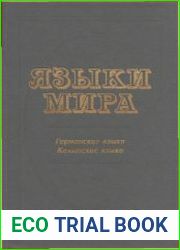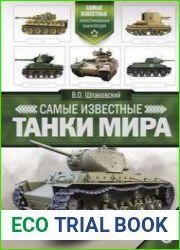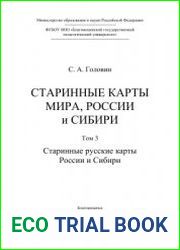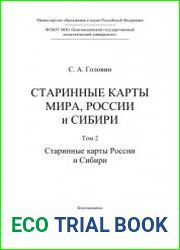
BOOKS - RELIGION - Сотворение Мира - религия и наука

Сотворение Мира - религия и наука
Author: Шалыгин А.Г.
Year: 2005
Pages: 384
Format: PDF
File size: 10,7 MB
Language: RU

Year: 2005
Pages: 384
Format: PDF
File size: 10,7 MB
Language: RU

The author shows how the development of modern scientific knowledge is based on the principles of the Creation of the World and how it is necessary to develop a personal paradigm for understanding this process. The book "Сотворение Мира религия и наука" (The Creation of the World, Religion and Science) presents a unique perspective on the relationship between religion and science, challenging the traditional view that science and religion are mutually exclusive. The author argues that the development of modern scientific knowledge is based on the principles of creation, and that a personal paradigm for understanding this process is essential for survival in today's world. The book begins by examining the main aspects of modern scientific theories, such as cosmology, cosmogony, nuclear physics, and biology, and demonstrates how these theories have failed to provide convincing explanations for various phenomena. The author then turns to religious studies, cultural studies, and history to show how religious beliefs and practices have been marginalized and suppressed by dominant scientific discourses. Through a detailed analysis of both scientific and religious perspectives, the author reveals the limitations of modern scientific theories and highlights the need for a more inclusive and nuanced approach to understanding the world. They argue that a personal paradigm for perceiving the technological process of developing modern knowledge is necessary for human survival and the unification of people in a warring state. The book emphasizes the importance of studying and understanding the process of technology evolution, as it has shaped our understanding of the world and ourselves. The author suggests that by recognizing the role of technology in shaping our beliefs and values, we can develop a more comprehensive and integrated view of reality.
Автор показывает, как развитие современного научного знания основано на принципах Сотворения мира и как необходимо выработать личностную парадигму понимания этого процесса. Книга «Сотворение Мира религия и наука» (Создание Мира, Религии и Науки) представляет уникальный взгляд на отношения между религией и наукой, бросая вызов традиционному представлению, что наука и религия взаимоисключающие. Автор утверждает, что развитие современного научного знания основано на принципах созидания, и что личная парадигма для понимания этого процесса необходима для выживания в современном мире. Книга начинается с изучения основных аспектов современных научных теорий, таких как космология, космогония, ядерная физика и биология, и демонстрирует, как эти теории не смогли дать убедительных объяснений различным явлениям. Затем автор обращается к религиоведению, культурологии и истории, чтобы показать, как религиозные верования и практики были маргинализированы и подавлены доминирующими научными дискурсами. Посредством детального анализа как научных, так и религиозных перспектив автор раскрывает ограничения современных научных теорий и подчеркивает необходимость более инклюзивного и тонкого подхода к пониманию мира. Они утверждают, что личная парадигма восприятия технологического процесса развития современных знаний необходима для выживания человека и объединения людей в воюющем государстве. В книге подчеркивается важность изучения и понимания процесса эволюции технологий, поскольку он сформировал наше понимание мира и нас самих. Автор предполагает, что, признавая роль технологий в формировании наших убеждений и ценностей, мы можем выработать более всеобъемлющий и интегрированный взгляд на реальность.
L'auteur montre comment le développement des connaissances scientifiques modernes est basé sur les principes de la Création du monde et comment il est nécessaire de développer un paradigme personnel de compréhension de ce processus. livre La Création du Monde Religion et Science présente une vision unique des relations entre la religion et la science, défiant l'idée traditionnelle que la science et la religion s'excluent mutuellement. L'auteur affirme que le développement des connaissances scientifiques modernes est basé sur les principes de la création, et que le paradigme personnel pour comprendre ce processus est nécessaire pour survivre dans le monde d'aujourd'hui. livre commence par étudier les principaux aspects des théories scientifiques modernes, telles que la cosmologie, la cosmogonie, la physique nucléaire et la biologie, et montre comment ces théories n'ont pas été en mesure de fournir des explications convaincantes aux différents phénomènes. L'auteur se tourne ensuite vers les études religieuses, les études culturelles et l'histoire pour montrer comment les croyances et les pratiques religieuses ont été marginalisées et réprimées par les discours scientifiques dominants. Par une analyse détaillée des perspectives scientifiques et religieuses, l'auteur révèle les limites des théories scientifiques modernes et souligne la nécessité d'une approche plus inclusive et plus subtile de la compréhension du monde. Ils affirment que le paradigme personnel de la perception du processus technologique du développement des connaissances modernes est nécessaire à la survie de l'homme et à l'unification des gens dans un État en guerre. livre souligne l'importance d'étudier et de comprendre le processus d'évolution de la technologie, car elle a façonné notre compréhension du monde et de nous-mêmes. L'auteur suggère qu'en reconnaissant le rôle de la technologie dans la formation de nos croyances et de nos valeurs, nous pouvons développer une vision plus globale et intégrée de la réalité.
autor muestra cómo el desarrollo del conocimiento científico moderno se basa en los principios de la Creación del mundo y cómo es necesario desarrollar un paradigma personal de comprensión de este proceso. libro «La Creación del Mundo Religión y Ciencia» presenta una visión única de las relaciones entre religión y ciencia, desafiando la concepción tradicional de que la ciencia y la religión son mutuamente excluyentes. autor sostiene que el desarrollo del conocimiento científico moderno se basa en los principios de la creación, y que un paradigma personal para entender este proceso es esencial para sobrevivir en el mundo moderno. libro comienza con el estudio de los aspectos básicos de las teorías científicas modernas, como la cosmología, la cosmogonía, la física nuclear y la biología, y demuestra cómo estas teorías no han sido capaces de dar explicaciones convincentes a diversos fenómenos. autor se dirige entonces a estudios religiosos, estudios culturales e historia para mostrar cómo las creencias y prácticas religiosas han sido marginadas y reprimidas por los discursos científicos dominantes. A través de un análisis detallado de las perspectivas tanto científicas como religiosas, el autor revela las limitaciones de las teorías científicas modernas y subraya la necesidad de un enfoque más inclusivo y sutil para entender el mundo. Argumentan que el paradigma personal de percibir el proceso tecnológico del desarrollo del conocimiento moderno es esencial para la supervivencia humana y la unión de las personas en un estado en guerra. libro destaca la importancia de estudiar y entender el proceso de evolución de la tecnología, ya que ha moldeado nuestra comprensión del mundo y de nosotros mismos. autor sugiere que, reconociendo el papel de la tecnología en la formación de nuestras creencias y valores, podemos desarrollar una visión más integral e integrada de la realidad.
O autor mostra como o desenvolvimento do conhecimento científico moderno é baseado nos princípios da Criação do Mundo e como é necessário desenvolver um paradigma pessoal para compreender este processo. O livro «A Criação do Mundo Religião e Ciência» (Criação do Mundo, Religião e Ciência) apresenta uma visão única das relações entre religião e ciência, desafiando a ideia tradicional de que a ciência e a religião são mutuamente exclusivas. O autor afirma que o desenvolvimento do conhecimento científico moderno é baseado nos princípios da criação, e que o paradigma pessoal para compreender este processo é essencial para a sobrevivência no mundo moderno. O livro começa com o estudo de aspectos básicos de teorias científicas modernas, como cosmologia, cosmogonia, física nuclear e biologia, e demonstra como essas teorias não foram capazes de dar explicações convincentes para vários fenômenos. Em seguida, o autor recorre à religião, à cultura e à história para mostrar como as crenças e práticas religiosas foram marginalizadas e reprimidas pelos discursos científicos dominantes. Através de uma análise detalhada das perspectivas tanto científicas quanto religiosas, o autor revela as limitações das teorias científicas contemporâneas e ressalta a necessidade de uma abordagem mais inclusiva e sutil da compreensão do mundo. Eles afirmam que o paradigma pessoal da percepção do processo tecnológico de desenvolvimento do conhecimento moderno é essencial para a sobrevivência humana e a união das pessoas num estado em guerra. O livro enfatiza a importância de estudar e compreender a evolução da tecnologia, porque ele moldou a nossa compreensão do mundo e de nós mesmos. O autor sugere que, reconhecendo o papel da tecnologia na formulação de nossas crenças e valores, podemos desenvolver uma visão mais abrangente e integrada da realidade.
L'autore mostra come lo sviluppo della conoscenza scientifica moderna si basa sui principi della Creazione del mondo e come sia necessario sviluppare un paradigma personale per comprendere questo processo. Il libro «Creazione del Mondo Religione e Scienza» (Creazione del Mondo, Religione e Scienza) presenta una visione unica dei rapporti tra religione e scienza, sfidando l'idea tradizionale che scienza e religione siano reciprocamente esclusi. L'autore sostiene che lo sviluppo della conoscenza scientifica moderna si basa sui principi della creazione, e che il paradigma personale per comprendere questo processo è essenziale per la sopravvivenza nel mondo moderno. Il libro inizia studiando gli aspetti fondamentali delle teorie scientifiche moderne, come cosmologia, cosmogonia, fisica nucleare e biologia, e dimostra come queste teorie non siano state in grado di fornire spiegazioni convincenti su diversi fenomeni. L'autore si rivolge poi alla religione, alla cultura e alla storia per dimostrare come le credenze e le pratiche religiose siano state emarginate e soppresse dai discussi scientifici dominanti. Attraverso un'analisi dettagliata delle prospettive sia scientifiche che religiose, l'autore rivela i limiti delle teorie scientifiche moderne e sottolinea la necessità di un approccio più inclusivo e delicato alla comprensione del mondo. Sostengono che il paradigma personale della percezione del processo tecnologico di sviluppo delle conoscenze moderne sia essenziale per la sopravvivenza dell'uomo e l'unione delle persone in uno stato in guerra. Il libro sottolinea l'importanza di studiare e comprendere l'evoluzione della tecnologia, perché ha creato la nostra comprensione del mondo e di noi stessi. L'autore suggerisce che, riconoscendo il ruolo della tecnologia nella formazione delle nostre convinzioni e dei nostri valori, possiamo sviluppare una visione più completa e integrata della realtà.
Der Autor zeigt, wie die Entwicklung des modernen wissenschaftlichen Wissens auf den Prinzipien der Schöpfung beruht und wie es notwendig ist, ein persönliches Paradigma für das Verständnis dieses Prozesses zu entwickeln. Das Buch Creation of the World Religion and Science (Creating the World, Religion and Science) bietet eine einzigartige Perspektive auf die Beziehung zwischen Religion und Wissenschaft und stellt die traditionelle Vorstellung in Frage, dass Wissenschaft und Religion sich gegenseitig ausschließen. Der Autor argumentiert, dass die Entwicklung des modernen wissenschaftlichen Wissens auf den Prinzipien der Schöpfung beruht und dass ein persönliches Paradigma zum Verständnis dieses Prozesses für das Überleben in der modernen Welt unerlässlich ist. Das Buch beginnt mit der Untersuchung grundlegender Aspekte moderner wissenschaftlicher Theorien wie Kosmologie, Kosmogonie, Kernphysik und Biologie und zeigt, wie diese Theorien keine schlüssigen Erklärungen für verschiedene Phänomene liefern konnten. Der Autor geht dann auf Religionswissenschaft, Kulturwissenschaften und Geschichte ein, um zu zeigen, wie religiöse Überzeugungen und Praktiken von dominanten wissenschaftlichen Diskursen marginalisiert und unterdrückt wurden. Durch eine detaillierte Analyse sowohl der wissenschaftlichen als auch der religiösen Perspektiven zeigt der Autor die Grenzen moderner wissenschaftlicher Theorien auf und betont die Notwendigkeit eines integrativeren und subtileren Ansatzes zum Verständnis der Welt. e argumentieren, dass das persönliche Paradigma der Wahrnehmung des technologischen Prozesses der Entwicklung des modernen Wissens für das Überleben des Menschen und die Vereinigung der Menschen in einem kriegführenden Staat notwendig ist. Das Buch betont, wie wichtig es ist, den Prozess der Technologieentwicklung zu studieren und zu verstehen, da er unser Verständnis der Welt und uns selbst geprägt hat. Der Autor schlägt vor, dass wir durch die Anerkennung der Rolle der Technologie bei der Gestaltung unserer Überzeugungen und Werte eine umfassendere und integrierte cht der Realität entwickeln können.
''
Yazar, modern bilimsel bilginin gelişiminin dünyanın Yaratılış ilkelerine nasıl dayandığını ve bu süreci anlamak için kişisel bir paradigma geliştirmenin nasıl gerekli olduğunu göstermektedir. "Dünya Din ve Biliminin Yaratılışı" (Creation of the World Religion and Science) kitabı, din ve bilim arasındaki ilişkiye dair benzersiz bir bakış açısı sunarak, bilim ve dinin birbirini dışlayan geleneksel düşünceye meydan okuyor. Yazar, modern bilimsel bilginin gelişiminin yaratılış ilkelerine dayandığını ve bu süreci anlamak için kişisel bir paradigmanın modern dünyada hayatta kalmak için gerekli olduğunu savunuyor. Kitap, kozmoloji, kozmogoni, nükleer fizik ve biyoloji gibi modern bilimsel teorilerin temel yönlerini inceleyerek başlar ve bu teorilerin çeşitli fenomenler için ikna edici açıklamalar sağlamada nasıl başarısız olduğunu gösterir. Yazar daha sonra dini inanç ve uygulamaların baskın bilimsel söylemler tarafından nasıl marjinalleştirildiğini ve bastırıldığını göstermek için dini çalışmalara, kültürel çalışmalara ve tarihe döner. Hem bilimsel hem de dini perspektiflerin ayrıntılı analiziyle yazar, modern bilimsel teorilerin sınırlarını ortaya koyuyor ve dünyayı anlamak için daha kapsayıcı ve nüanslı bir yaklaşıma duyulan ihtiyacı vurguluyor. Modern bilginin gelişiminin teknolojik sürecinin kişisel bir algı paradigmasının, insanın hayatta kalması ve insanların savaşan bir durumda birleşmesi için gerekli olduğunu savunuyorlar. Kitap, dünyayı ve kendimizi anlamamızı şekillendirdiği için teknolojinin evrim sürecini incelemenin ve anlamanın önemini vurgulamaktadır. Yazar, teknolojinin inanç ve değerlerimizi şekillendirmedeki rolünü kabul ederek, daha kapsayıcı ve entegre bir gerçeklik görüşü geliştirebileceğimizi öne sürüyor.
يوضح المؤلف كيف أن تطوير المعرفة العلمية الحديثة يستند إلى مبادئ خلق العالم وكيف أنه من الضروري تطوير نموذج شخصي لفهم هذه العملية. يقدم كتاب «خلق الدين العالمي والعلوم» (خلق العالم والدين والعلوم) نظرة فريدة للعلاقة بين الدين والعلم، متحديًا الفكرة التقليدية القائلة بأن العلم والدين متعارضان. يجادل المؤلف بأن تطوير المعرفة العلمية الحديثة يستند إلى مبادئ الخلق، وأن النموذج الشخصي لفهم هذه العملية ضروري للبقاء في العالم الحديث. يبدأ الكتاب بفحص الجوانب الأساسية للنظريات العلمية الحديثة مثل علم الكونيات والفيزياء النووية وعلم الأحياء، ويوضح كيف فشلت هذه النظريات في تقديم تفسيرات مقنعة لظواهر مختلفة. ثم يلجأ المؤلف إلى الدراسات الدينية والدراسات الثقافية والتاريخ لإظهار كيف تم تهميش المعتقدات والممارسات الدينية وقمعها من خلال الخطابات العلمية السائدة. من خلال تحليل مفصل لكل من المنظورين العلمي والديني، يكشف المؤلف عن قيود النظريات العلمية الحديثة ويؤكد على الحاجة إلى نهج أكثر شمولاً ودقة لفهم العالم. يجادلون بأن النموذج الشخصي للإدراك للعملية التكنولوجية لتطوير المعرفة الحديثة ضروري لبقاء الإنسان وتوحيد الناس في حالة حرب. يؤكد الكتاب على أهمية دراسة وفهم عملية تطور التكنولوجيا، لأنها شكلت فهمنا للعالم ولأنفسنا. يقترح المؤلف أنه من خلال الاعتراف بدور التكنولوجيا في تشكيل معتقداتنا وقيمنا، يمكننا تطوير رؤية أكثر شمولاً وتكاملاً للواقع.







